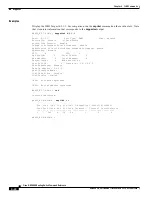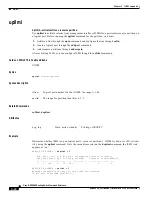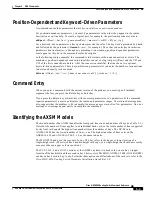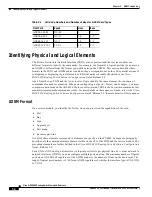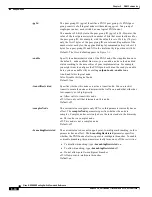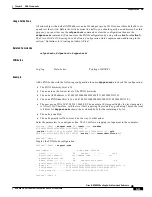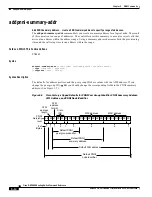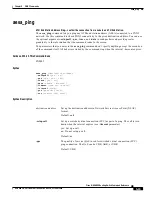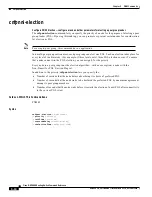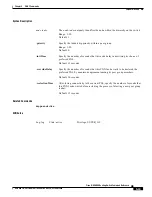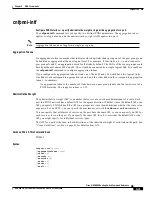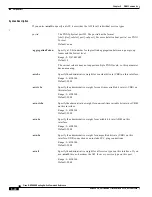
5-10
Cisco MGX 8850 Routing Switch Command Reference
Release 2.0, Part Number 78-10467-04 Rev C0, October 2001
Chapter 5
PNNI Commands
addpnni-node
-pgId
The peer group ID (pg-id) identifies a PNNI peer group. (A PNNI peer
group consists of all logical nodes with matching pg-ids. In a group of
single-peer nodes, each switch has one logical PNNI node.)
The number of 8-bit bytes in the peer group ID (pg-id) is 14. However, the
value of the level parameter is the number of bits that are actually used for
the peer group ID. For example, with the default level of 56 bits (7 bytes),
only the first 7 bytes of the peer group ID are relevant. Regardless of the
number relevant bytes, the applicable display commands always show 14
bytes for a peer group ID and fill in the irrelevant byte positions with 0s.
Default: The Cisco default appears in
Figure 5-1
.
-enable
Specify the administrative state of the PNNI node. Most applications use
the default—node enabled. However, you can add a node in the disabled
state according to the necessities of your implementation. For example,
you might want to configure the PNNI protocol but not be ready to enable.
Later, you can enable it by executing cnfpnni-node -enable true.
true: Enable this logical node.
false: Disable this logical node.
Default: true
-transitRestricted
Specifies whether this node can act as a transit node. You can restrict
transit to secure the node or to minimize the traffic on a node that either has
low-capacity or is high-priority.
on: Allow calls to transit this node.
off: Allow only call that terminate on this node.
Default: off
-complexNode
The current release supports only SPGs, so this parameter currently has no
effect. The complexNode parameter specifies whether the node is
complex. Complex nodes exist only above the lowest node in the hierarchy.
on: This node is a complex node.
off: This node is not a complex node.
Default: off
-branchingRestricted
The current release does not support point-to-multipoint branching, so this
parameter has no effect. The branchingRestricted parameter specifies
whether the PNNI node disallows point-to-multipoint branches. To enable
or disable branching, this parameter actually turns on or off the restriction:
•
To disallow branching, type -branchingRestricted on.
•
To allow branching, type -branchingRestricted off.
on: Do not allow point-to-multipoint branches.
off: Allow point-to-multipoint branches.
Default: on

